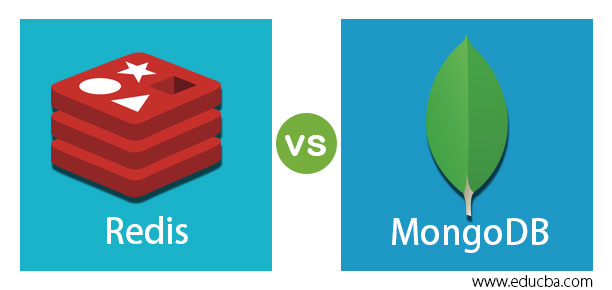Updated February 28, 2023
Introduction to Redis vs MongoDB
The most popular data storage solutions have become Redis and MongoDB. Their appeal is that users are provided with a simple and high-performance structure. Both of these approaches are well fit with situations where connection databases function poorly in terms of both scalability and simplicity. MongoDB is an information storage document-oriented solution which supports the server or cloud installation. A database is provided in MongoDB in the form of a JSON file, an effective and easy way for many applications. Redis, however, is the key value storage solution for user servers, high-performance clusters, or cloud information. Both MongoDB and Redis work very well with Java, Python and other languages and frames for programming.
What is MongoDB?
As mentioned previously, MongoDB is an excellent document-oriented database. It has a lot of advantages but without its drawbacks. At the same time, MongoDB meets extremely complex criteria for managing large ranges of information and manipulates data processing considerably quickly. MongoDB stores handles and uses binary data in a user-friendly way for the input and output of JSON documents. In addition, the MongoDB interface in the command line is simple, user-friendly and easy to use. MongoDB operates in binary images, where each type of BSON has the identification integer and string for each type of value. BSON’s maximum size is 16 megabytes.
What is Redis?
Redis is a remote dictionary server which implements the key-value storage principle. It’s a great example of an open source NoSQL database. Redis provides high-performance data read and save through the memory storage and a snapshot of the permanent device, such as SSD and HDD, as well as a time-to-time data storage mechanism which remains in the virtual memory. In addition to these remarkable characteristics, Redis also offers a transmission system that replicates on multiple computers in a cluster and supports a dozen programming languages and operate in many operating systems. Redis supports the values of the data type that can be connected to a key. These data types help manage information as strings, sets, lists, sorted sets, hash tables, and hyper logs.
Head to Head Comparison between Redis vs MongoDB (Infographics)
Below are the top 7 comparisons between Redis vs MongoDB:
Key differences between Redis vs MongoDB
Let us discuss some key differences between Redis vs MongoDB in the following points:
1. Redis is a key-value storage solution at the end of a user, cloud, or cluster while MongoDB is a document-based storage solution that can be installed either in the cloud or on servers at the end of a user.
2. Since the database can be managed by Redis faster when it compared to the MongoDB database, we can say that when it comes to higher latency rates, Redis is considerably quicker than MongoDB But this story is completely different in the case of lower latency rates. MongoDB beats Redis by default when it comes to lower latency rates.
3. MongoDB works even better than Redis while it still has a computer memory. But once MongoDB is connected to the CPU, its performance slowly slows down.
4. MongoDB is clearly inferior to Redis for the scaling scenario by supporting additional scaling methods and RAM on Redis’ physical machinery.
5. Redis comes with a memory engine that lets the tool run with the higher workload set comfortably, while MongoDB comes with the Percona engine that allows the tool a memory storage engine.
6. Redis can be used as alternate database along with existing database. On the other hand, MongoDB is used as only database in the organisation.
7. Redis is less scalable than MongoDB whereas Being as highly flexible, it is more scalable than Redis.
Comparison Table
The table below summarizes the comparisons between Redis vs MongoDB:
| Redis | MongoDB |
| Redis is a data-structure in-memory, used to store data, cache, and messages. | MongoDB is the NoSQL database that is one of the most common, following the structure of documents. |
| The key-value-store model is implemented by Redis. | MongoDB is adopting the Framework Document Store. |
| Redis implements its own protocol. | MongoDB uses JSON to adopt the proprietary protocol. |
| Consistency and immediate consistency possible. | Eventual Consistency is possible. |
| Redis is in-memory database hence it is faster than MongoDB. | MongoDB is less fast than Redis. |
| Redis can be used as an alternate database along with an existing database. | MongoDB is used as the only database in the organization. |
| Redis is less scalable than MongoDB. | Being as highly flexible, it is more scalable than Redis. |
Recommended Articles
This is a guide to Redis vs MongoDB. Here we discuss the Redis vs MongoDB key differences with infographics and comparison table. You may also have a look at the following articles to learn more –




